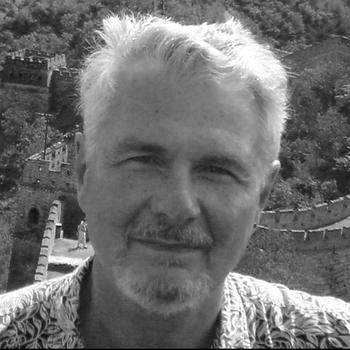Dennis Kennedy

Interweaving Performance Cultures
Fellow 2010/11
Now Professor and Fellow Emeritus in Trinity College Dublin, Dennis Kennedy held the Samuel Beckett Chair of Drama there from 1994 to 2006 and led the School of Drama to an international reputation in theatre studies and actor training. Previously he was Professor of Theatre in the University of Pittsburgh. He is the author and editor of numerous books on performance history and theory, including Looking at Shakespeare, Granville Barker and the Dream of Theatre, Foreign Shakespeare, The Oxford Encyclopedia of Theatre and Performance and its concise version, The Oxford Companion to Theatre and Performance. He has received many awards, has held distinguished visiting professorships on three continents, and was elected to the Royal Irish Academy and the Academia Europaea. He frequently lectures on performance topics around the world. His own plays have been performed in London, New York, and elsewhere. He regularly gives workshops in acting Shakespeare and has frequently worked as a dramaturg and director in the professional theatre. In 2005, he directed Shakespeare’s As You Like It in Beijing in Chinese.
Research Project
The Woven and the Unwoven: The Politics of the Intercultural in Contemporary Performance
Every weaving of diverse cultural material is an unweaving of the culture that created or protected it. We can take such interweaving as a socially positive act, a considered response to the migration of peoples and cultures already at work in postmodernity. Or we can view it as a desperate idealism, a forlorn hope of correcting the imbalance of cultures by the twin devices of cultural appropriation and aesthetic modelling. Or we might prefer to see interweaving more complexly, as itself made up of the contradictory impulses present in globalization.
Whichever stance we take, interweaving remains inherently political, even if a large amount of intercultural performance tends to ignore its own politics. In this project I will attempt to sort out the politics of intercultural performance by sorting out my own evolving materialist position regarding the social and aesthetic in contemporary culture. Shakespeare performance in Asia is the starting point, because of the opportunities Shakespeare provides for comparative study, but the project will also move into new plays and performance that is not logocentric.
The ultimate difficulty in theorizing interculturalism lies in trying to identify what happens to spectators, or what a creator of intercultural performance thinks should be happening to them. Does a spectator shift cultural ground by watching the weaving of cultures on stage? Can a spectator be expected to take from the interweaving of performance cultures anything more than a touristic aesthetic experience? Is it possible for self-consciously transcultural performance to model the future in the mind of the spectator?
Selected Publications
- Kennedy, D., The Spectator and the Spectacle: audiences in modernity and postmodernity,Cambridge: Cambridge University Press, 2009.
- Kennedy, D. and Lan, Y. L. (eds.), Shakespeare in Asia: contemporary performance, Cambridge: Cambridge University Press, 2010.
- Kennedy, D. (ed.), Looking at Shakespeare: a visual history of twentieth-century performance, Cambridge: Cambridge University Press, 2001.
